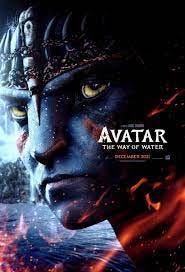4 of the Most Disappointing Movies of 2022 Are Nominated for Best Picture Oscars (Plus My Personal List of Best Movies of the Year)
One is terrible, two are meh, and one never lives up to its pedigreed potential.
Peanuts character Charlie Brown said it best: “In all this world, there is no heavier burden than great potential.” Each year hundreds of movies are released and audiences are aglow with anticipation of watching stories that illuminate, uplift, or just thrill us. (Just ask Nicole Kidman.) Few succeed in living up to that burdensome potential—a potential fueled by enthusiastic trailers that promise more than most films deliver. And yet, a handful manage to rise to the top by balancing insight and entertainment, intellect and emotion, technical skill with soulful will. Those are the movies the Academy Award is tasked with nominating for Best Picture of the year.
Theoretically.
But the reality is that the Academy is an organization of people in the movie business and the Oscars are a major tool in promoting movies around the world. For mid-budget movies, a nomination can be worth an extra $20 million and a win could add another $10 million (“How Much Is That Oscar Gold Actually Worth?”). Voters have a financial or friendship interest in which movies win and that can affect their voting. A big-budget movie employs hundreds of members of the Academy, so its success can create more jobs. That’s the only explanation for why some of the films on the list were nominated this year.
You’ll notice that my title says “disappointing movies” not “bad movies.” Only one of the nominations was actually bad. The other three on my list weren’t bad, they were just misfires that tried to take a giant leap for moviekind, but only managed one small step before stumbling. Sadly, that’s 40% of the Best Picture nominations that don’t deserve to be on the list.
I love movies of almost every genre. It doesn’t take much to get on my good side because I go into every opening credit with a childlike faith that movie will be good. Even when all the reviews pan it, I still hold out hope it will be good. And if that movie is just okay, that’s often good enough for me. I’m satisfied. But when it comes time to measure the best movies that we are able to produce—the Best Picture of the Year—my expectations rise and the criteria is more exacting.
After I discuss the disappointing nominations of this year, I’ll leave you with a brief list of the movies I most enjoyed and which one I think should win as Best Picture.
Full disclosure: Top Gun: Maverick is not on my list of disappointing movies because it didn’t disappoint. But I also don’t think it deserved to be nominated because it’s basically a really good popcorn movie that doesn’t strive to be anything more. I’d watch it again before any of the movies on my “disappointing” list, but we shouldn’t pretend that just because a movie was fun and exciting, it’s a Best Picture. That distinction should be reserved for movies that at least try to offer insight and depth. To misquote poet Robert Browning, our reach should exceed our grasp, Or what's a Best Picture Oscar for?
Also, I haven’t yet seen Triangle of Sadness, so I have no opinion on the movie.
The Bad
Avatar 2: The Way of Water
(I originally commented on this movie in my Dec. 14, 2022 Substack.)
Avatar: The Way of the Water is like looking at the most beautiful gowns ever made—but hanging lifelessly on a wire hanger in a .99 store. I wanted to like the movie—I really did—because I have to be committed in order to sit in those small movie seats with my legs crunched up for over three hours! Unfortunately, my knees did not forgive me.
When the first thing most people talk about is the special effects, then you know something went terribly wrong. We can praise the innovative techniques all we want, but that is no replacement for the barrenness of the story, the thinness of the characters, and the blandness of the dialogue.
Director and co-writer James Cameron’s sequel to Avatar (2009) was thirteen years in the making, but already feels dated. We can start with the most obvious: it’s an hour too long. I say this as a moviegoer who likes long films (sorry, knees), but only if the story justifies the length. This one does not. Most of the scenes showing the family assimilating to life with the water tribe are boring and unnecessary. They didn’t have to be, but they are because the film cares more about wowing us with visual effects then giving us characters that aren’t stereotypes.
I like stories that blend genres, but this doesn’t blend so much as jump around with no transitions. It’s an action film, then a teen dramedy, then Jaws, then a pseudo-spiritual/environmental lesson (spoiler: We’re all connected to Nature), then an homage to Titanic. Yes, all this could have been mixed together to create something wondrous, but sadly it just goes through the motions, like a Valentine Day dinner for a couple wanting to break up.
There’s an old-fashioned ‘50s vibe to the plot. Mostly, the men are strong, silent, and manly, the women emotional and spiritual. Dads bond with sons, mothers with daughters. Most of the conflicts result from the children disobeying the parents—again and again. The dialogue, the plot, and the characters are all woefully predictable. I had more of an emotional reaction to Thing being injured in Wednesday than to anyone in Avatar.
Be prepared for three hours of eye-rolling and head-shaking.



